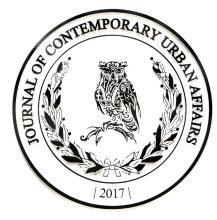Resource information
The paper analyses a community development project based in Jhenaidah Bangladesh which evolved through broadening social capital among slum communities and formal institutions in order to bring positive sociospatial changes in the neighborhoods Till date nine disadvantaged communities have formed a network for citywide community development have started to build and manage their own funds built better houses for themselves and through this process have managed to draw attention and support from the local government The positive impacts brought with the project were a result of a continuous dialectic process involving the communities and a small pool of professionals Active presence patience participation and trust in peopleled process were important tools which resulted in the transformation of power within the communities Hence issues like scaling up and economic sustainability still concern those who can see the communitydriven development process with an unbiased attitude The overarching goal of this article is to sketch out these issues with the help of empirical understandings from the field and theoretical findings from the literature on social innovation and power in planning in order to understand how to work balance between local and institutional management of projects in order to avoid perceiving bottomup and topdown initiatives in a dualistic manner


